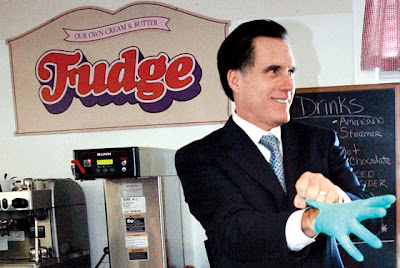http://arxiv.org/pdf/1201.4377.pdf
http://www.mail-archive.com/vortex-l@eskimo.com/msg63015.html
The Cold Fusion Ping List
http://www.freerepublic.com/tag/coldfusion/index?tab=articles
--------------------------------------------------------------
http://ecatnews.com/?p=1144
1 posted on
02/09/2012 8:50:08 PM PST by
Kevmo
To: dangerdoc; citizen; Liberty1970; Red Badger; Wonder Warthog; PA Engineer; glock rocks; free_life; ..
2 posted on
02/09/2012 8:51:09 PM PST by
Kevmo
(If you can define a man by the depravity of his enemies, Rick Santorum must be a noble soul indeed.)
To: SunkenCiv
4 posted on
02/09/2012 9:03:56 PM PST by
Track9
To: Kevmo

I know about condensed matter.
5 posted on
02/09/2012 9:10:00 PM PST by
Mike Darancette
(Romney just makes me tired all over.)
To: All; y'all; et al
abstract of the theory:
Including nuclear degrees of freedom in a lattice Hamiltonian
P L Hagelstein1, I U Chaudhary2
1 Research Laboratory of Electronics, Massachusetts Institute of Technology,
Cambridge, MA 02139,USA
E-mail: plh@mit.edu
2 Department of Computer Science and Engineering, University of Engineering and
Technology, Lahore, Pakistan
E-mail: irfanc@mit.edu
Abstract.
Motivated by many observations of anomalies in condensed matter systems, we
consider a new fundamental Hamiltonian in which condensed matter and nuclear
systems are described initially on the same footing. Since it may be possible that
the lattice will respond to the mass change associated with a excited nuclear state, we
adopt a relativistic description throughout based on a many-particle Dirac formalism.
This approach has not been used in the past, perhaps due to the difficulty in separating
the center of mass and relative degrees of freedom of the nuclear system, or perhaps due
to an absence of applications for such a model. We recently found a way to separate
the center of mass and relative contributions to the Hamiltonian for the many-particle
Dirac model, which leads to somewhat different expressions for the kinematic mass,
Newton mass, and deBroglie mass of the many-particle Dirac composite. It is not clear
at this time whether such a difference is reflected in experiment. This separation allows
us to reduce the condensed matter and nuclear Hamiltonian into a more manageable
form. In the resulting model, there appears a new term in which nuclear transitions
are coupled to lattice vibrations.
6 posted on
02/09/2012 9:13:00 PM PST by
Kevmo
(If you can define a man by the depravity of his enemies, Rick Santorum must be a noble soul indeed.)
To: Kevmo
Could someone please translate this? It is a bunch of nonsense to me.
9 posted on
02/09/2012 9:42:42 PM PST by
garjog
(If not Newt, who?)
To: glock rocks
REAL friends PING their friends to threads!!!
:)
11 posted on
02/09/2012 9:54:03 PM PST by
Brad’s Gramma
(PRAY for this country like your life depends on it....)
To: Kevmo
13 posted on
02/09/2012 10:31:03 PM PST by
reed13
14 posted on
02/09/2012 10:33:32 PM PST by
Milhous
To: Kevmo
Did somebody mention Mit?

15 posted on
02/09/2012 10:42:54 PM PST by
Dogbert41
("...or by Jerusalem, for it is the city of the Great King. " -Jesus)
To: Kevmo
I was ready to believe until I got to this part.
Put some protons in a micro-cavity and shake until coherent. Rossi’s powder does this job. In the heavy water experiments, micro-cavities have done the same job in that system but not as intensely as it is done by the Rossi’s powder or Piantelli’s rough surface coating.
16 posted on
02/09/2012 10:59:06 PM PST by
Moonman62
(The US has become a government with a country, rather than a country with a government.)
To: Kevmo
Keanu Reeves - Vindicated!

Kidding aside, interesting article. This is the kind of theoretical work that is required in this field.
25 posted on
02/10/2012 5:48:50 AM PST by
Jack of all Trades
(Hold your face to the light, even though for the moment you do not see.)
To: Kevmo
This was all explained years ago by noted physicists Captain & Tennille in their paper MUSKRAT LOVE.
28 posted on
02/10/2012 7:22:48 AM PST by
blueunicorn6
("A crack shot and a good dancer")
FreeRepublic.com is powered by software copyright 2000-2008 John Robinson



